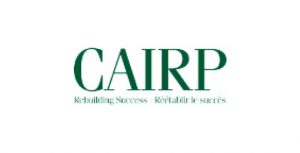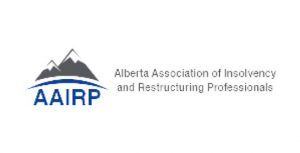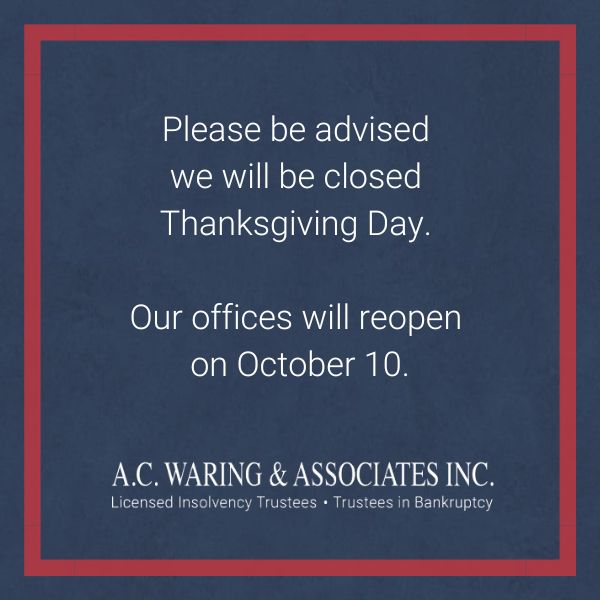Get Help Climbing Out of Debt
Are your creditors calling? Are your wages being garnished? Do you need help climbing out of a surmounting pile of debt?
Both consumer proposals and bankruptcy are effective forms of debt relief when overwhelmed. But what exactly are they and which one is right for you? The professionals at A.C. Waring & Associates Inc. can help you determine the best debt solution for your unique situation. No referral is required.


What Is a Consumer Proposal?
A consumer proposal is a legally binding agreement that offers debt relief and protection from unsecured creditors—without filing for bankruptcy.
Consumer proposals are available to individuals who owe less than $250,000, excluding a home mortgage. Your Licensed Insolvency Trustee will develop a revised debt repayment plan that will encompass more manageable terms with you. Once approved by a majority of creditors, you will need to abide by the new terms.
When Would You Pursue a Consumer Proposal?
Consumer proposals are best for individuals who:
- Have debt over $5,000 but not over $250,000 (not including a home mortgage)
- Have a regular source of income and can make some monthly payments
- Cannot repay debts on time
- Want to avoid issues regarding income and asset rules if filing bankruptcy
Consumer Proposals Quick Facts
- Division I Consumer Proposals are only available to individuals with less than $250,000 of debt
- Licensed Insolvency Trustees are the only professionals who can file consumer proposals
- Once a Consumer Proposal is filed and a plan is presented to creditors, they have 45 days to vote on approval
- A majority vote will uphold the proposal, which then becomes legally binding on all unsecured creditors subject to Section 178 debts (e.g.: student loans, child support, etc.)
What Is Bankruptcy?
Bankruptcy is a legal proceeding involving an individual or corporation unable to repay outstanding debt.
When a bankruptcy action is filed, it stops collection, legal action, and wage garnishment. Although not all debt may be discharged, it can provide financial relief and a fresh chance to get back on track.
When Should You Pursue Bankruptcy?
If you simply do not have the financial resources to pay your debts and your creditors will not agree to a consumer proposal or another remedy, you may want to consider filing for bankruptcy.
Who Can Benefit From Bankruptcy?
Filing for bankruptcy may be your best option, if:
- You’ve been unemployed for an extended period without any savings or unemployment income
- Your wages are being garnished
- You have delinquent income taxes
- You’re facing lawsuits for delinquent bills
- Your home is nearing foreclosure
- You’re not sure how much you owe exactly
- You’re using credit cards to pay for necessities
- You frequently take out payday loans
Bankruptcy Quick Facts
- Certain specific debts are not discharged as a result of filing for bankruptcy
- Bankruptcy stops legal action by unsecured creditors—including wage garnishees
- Bankruptcy does not follow you forever, and you may be discharged in as little as 9 months
- Bankruptcy will not release your third party’s personal guarantee of the debt
The Main Differences Between Bankruptcy & Consumer Proposals
Although either a consumer proposal or bankruptcy can provide relief from debt, which action you choose depends largely on your unique situation.
If you have a lack of income, pending lawsuits, are unable to pay back any amount of your debt and are financially overwhelmed, filing for bankruptcy may be your better option.
However, if you have a source of income, savings, or assets and the means to pay down at least some of your debt, but not all, a consumer proposal can be a great option for you.
Consumer Proposals
Consider if you:
- Have a source of income, assets, or savings
- Can make some financial payments
- Do not rely on credit cards for necessities
- Can maintain a residence
- Have no creditor lawsuits
Bankruptcy
Consider if you:
- You do not have an income, assets, or savings
- Creditors have initiated lawsuits
- A home foreclosure is pending
- Credit cards are maxed
- Credit cards or loans are used to pay for necessities and bills
- You have liquidated your retirement assets
Schedule Your FREE Consultation Today
Still unsure whether a Consumer Proposal or bankruptcy is right for you? We can help. Contact our professional credit counsellors at A.C. Waring & Associates Inc. at 780-424-9944 or 1-800-463-3328 to schedule a free consultation today.
Where To Find Us
Find us in the First Edmonton Place building on the corner of Jasper Avenue and 107th Street, behind the Corona LRT Station. Street meter parking is available along Jasper Avenue as well as 106th and 107th Streets, and paid surface parking is off of 106th Street, and underground parking for First Edmonton Place is off of 107th Street.

A.C. Waring &
Associates Inc.
- First Edmonton Place
410-10655 Jasper Ave NW - Edmonton, AB T5J 3S9
Contact
Information
- Phone: 780-424-9944
Hours Of Operation
- Monday: 8:30 AM – 5:00 PM
- Tuesday: 8:30 AM – 5:00 PM
- Wednesday: 8:30 AM – 5:00 PM
- Thursday: 8:30 AM – 5:00 PM
- Friday: 8:30 AM – 5:00 PM
- Saturday: Closed
- Sunday: Closed
Our Google Reviews

Our Testimonials
Dealing with the wonderful people at A.C. Waring has made a traumatic experience hurt a whole lot less.
Everyone there has treated me with nothing but the utmost respect and kindness.
I have nothing but high praise for everyone there.”
J.G.
“Thank You!
Thanks to Stan and everyone at A. C. Waring for making this process simple and easy.”
R.C.
“I appreciate your kindness
Kim was really good. I always felt calmer after talking with her. Please let her know I appreciate your kindness.”
C.G.
“Shanaz, thank you for your understanding, thoughtful support and advice through an extremely difficult time assisting us in resolving our financial difficulties and allowing us an opportunity to get back on our feet.
We are extremely grateful to you and your company for the important service you provide to people and families facing financial adversary in these trying times.”
M & H.
“Thank you!
Dear Pat, Thanks again for your Totally Awesome help!!”
M.V.
Fern,
Thank you so much for making my life better. It means so much that I can at least get up in the morning! Thank you again.
J.K.
“Shanaz and Team!
Our heartfelt gratitude to you all. You provide such an important and life changing service and there are no words to express how grateful we are for all you do.”
K & R
“Although we are not done with our bankruptcy yet we just wanted to say thank you for taking a totally overwhelming situation and making it so much easier for us. You have explained everything along the way and reassured us that we will get through this. Stan has always been there when we had questions. I’m so glad you have been there for us. Thanx for all you do.”
S & G
“To the most sweetest Lady EVER…
Thank you so much for being there for us, for helping us out and for giving us a second chance at our financial life. If it wasn’t for you we would not be where we are right now and probably would not have been able to move back home this quickly and unexpectedly.
So thank you for all that you have done for us and continue to do. You and your company have been a life saver, changed our lives (both us and kids) in all aspects and ways possible! We will forever be grateful to you and hopefully one day be able to physically see you and give you a HUGE hug.
Take care, and if you ever travel our way to Eastern Canada, please contact us…our door will always be open to you and your loved ones!!!”
J.B. and L.B. Family
“Very grateful!
Dear Shanaz,
Thank you for all you’ve done for me, I am very grateful for you! God bless you Shanaz.”
JT
“What truly matters…
Thank you so much for taking the time to speak with me today. I know how incredibly busy you are, yet you made me feel like a special person and someone who is valued. You probably make all of your clients feel that they.
Please tell others to never give up hope and to keep their loved ones close, as that is truly what matters.”
H. & G.
“Thank you so much!
It was great meeting you. Thank you so much for explaining the bankruptcy process to my brother and I. You are very knowledgeable and friendly and you helped my brother a lot.”
E.S.
“Shanaz, Thank you for your guidance and expertise.
Shanaz, Thank you for your guidance and expertise. I appreciate all the help you have given me. Seriously, Thank You from the bottom of my heart! (I’m no doctor, but apparently that’s where the most grateful part is.)”
C.M.
“Thank You
Arthur, Heather and Beth,
Thank you 1000 x 5!!”
M.S.
“Thank you for your help!
Hi Shanaz, I had a second and wanted to thank you for your help!”
L.D.
“Thank you for all you’ve done
Thank you so much for all your help! I appreciate all that you have done for me!”
C.
“Thanks and Appreciation
With thanks and appreciation for your help”
D.A.
“Thank you
Just want to say Thank You for all your help.”
J.T.
“Thank you so much for all your kindness, wisdom and support.
We are so grateful for you.
We will gladly refer our friends and family to you.
Many beautiful blessings in your life.”
T. and T.B.
“Good Morning
I would like to thank the staff for helping me during my bankruptcy.
Thanks once again.”
J.B.
“Happy New Year to Everybody
Because of you guys i was able to have a better holiday.
Thank you so much.”
G.L.
“Thank you and your Company for your assistance
I am writing this letter to thank you and your Company for your assistance at my hard times. I was your client in 2015-2017. At that period you supported me both financially and even psychologically. Your professional advice and tact helped me greatly to overcome my temporal financial difficulties and to keep the power to live further. Moreover, you and your highly qualified personnel, especially Beth Bui, who was my adviser at that time, did your best. As a result, I even managed to avoid my depression.
Once again, I just wanted to let you know how much I’ve appreciated your advice and assistance.
Yours truly,”
I.K.
“Much appreciated.
Thank you Shanaz, for all your help. Much appreciated.”
Mr. and Mrs. B
“Your staff are great
Arthur, it was good to talk to you. Your staff are great too and I have learned a lot. Thank you.”
G.
“Thank you for all the help
Dear Shanaz,
I want to thank you for all the help you have done for me. Hope things are well with you and your family.
Thank you so very much,”
J.T.
“Such a good experience
Such a good experience. After a change in finances left us without many options, so glad A. C. Waring and Associates have been there every step of our recovery process.”
R.F.
“I can’t thank you enough
Dear Shanaz:
Hope things are going okay with you and my accounts. If You need to call me please do. I can’t thank you enough for what you are doing for me. Please take care,
Yours truly,”
Joyce
“Thank You for Being Thoughtful
To the A C Waring & Associates Family,
Thank you for being so thoughtful. You can’t imagine how much it’s appreciated.”
M and R P-K
“Appreciate Your Consideration
Hello Shanaz,
You are a very special and dear person. I so appreciate your consideration!
Sincerely,”
DB
“Always There for Me
To AnnMarie:
Just a Thank You for all your help at a time in my life that was very hard for me. You were always there for me even when I could be a pain. Your help through this process helped me so much. I would like to thank everyone that had a part in the process from beginning to end. Thank you all. Also I feel I should include the wonderful man that hired all these great people, Mr. Arthur Waring. Bless you all. Thank you all again for all your help through the bankruptcy. All the best in all of your futures. You are a great bunch of people. Thank you with all of my heart.”
V.N.
“Made Our Lives Better
Shanaz,
My husband and I cannot thank you enough for all of your assistance. You have made our lives so much better. I hope you have a wonderful New Year.”
Mr. and Mrs. H
“Thank You
Arthur, Heather and Staff,
Thank you for all your help.”
Mr. and Mrs. C
“Appreciated Your Help
AnneMarie,
I appreciated all your help in this solution. Wishing you and yours all the best!”
RG
“Truly an Angel
Shanaz,
Thank you for everything you have done for us and our family. We will keep referring to you! You truly are an Angel.”
M
“Thanks for everything
Hi Fern,
Thanks for everything. Sept 9th was stressful & exciting! Soooo glad I’m “done”.
Thanks-thanks-thanks.”
C.K.
“Helping You When You Need It
Merry Christmas:
I’d like to thank you for getting me through a tough time.”
R
“Thank you for your patience
Fern and Arthur
Thank you for your patience in this trying period for me. Your patience and calmness have been very much appreciated as I worked through this. I never in my life thought I would be going through bankruptcy, it has been most disconcerting. That said, there is reassurance in Karma now that the police have just about finalized the materials to charge and try Mr. C. Thank you once again.”
W.K.
“Thanks to You Both
Hi AnneMarie and Dana,
I just want to take a minute to thank the both of you for all of your assistance in getting me through this.”
DJ
“Special & Dear
Hello Shanaz,
You are a very special and dear person. I so appreciate your consideration!”
DB
“Much Appreciated
Dear Fern,
I appreciated everything for your goodness to me. God bless.”
RB
“Made Our Lives Better
Shanaz,
We cannot thank you enough for all of your assistance. You have made our lives so much better.”
S and SH
“Helping You Find a Fresh Start
Dear Laverne,
Thank you for all your help, patience and understanding during this last year in my bankruptcy. I am glad to put this part of my life behind me and start fresh. I could not have done it without the support you and the staff at A.C. Waring & Associates Inc. offered me.
Thank you,”
A
“Life a Lot Less Stressful
Thank you, Shanaz, again, for all that you have done for us. Too bad we did not do this a lot sooner. It sure opened our eyes and life is a lot less stressful when you don’t receive phone calls from creditors. Thanks again.
God bless you all.”
L and DR
“Great Professionalism
A.C. Waring & Associates,
I would like to thank you very much for the great effort you have shown in arranging the many details required for finalizing the contract design.
Great professionalism.”
F
“Thanks So Much
This poem sent to Shanaz:
“Some impart wisdom or comfort and care.
Some point out the path, and some take you there.
Some warm the heart with a human touch.
You have all these gifts…
Thanks so much.”
M and AA
“Personal Service
Thank you Mr. Waring and Laverne:
I thank you for all your help in encouraging me through this insolvency. I am finally getting on my feet again.
Thanks,”
R
“Beyond Expectations
Hi Shanaz,
I can’t thank you enough, but I hope you know that Dave and I appreciate everything you’ve done. We were even able to put some monies aside. It is a very good feeling to be able to pay for things in cash. Thank you again. We will be in touch with you later.”
L and D
“Professional Support
Dear Laverne,
Just a short note to thank you for all your help involving my file (sorry I’m a bit tardy sending you this card). Approximately mid-August I experienced a relapse and I just started getting back on my feet. I sincerely appreciate the support and guidance you afforded me! All the best to you in the future, take care.
Sincerely,”
D
“Debt Experts
Hi AnneMarie,
I am sorry for the late reply. I received the discharge 2 weeks ago. At work, there’re a lot of things to do. Home is no different. I thank you and A.C. Waring & Associates Inc. very very much for helping me. Without A.C. Waring & Associates and you, my life would have been miserable. With your help and ADDAC classes, I am on the right track. I want to be on this track forever. I don’t want to think of the place that ruined my life. I was not very smart when I made this big mistake.
Thank you AnneMarie,”
W
“Much Appreciated
Fern and Arthur,
Thank you for your patience in this trying period for me. Your patience and calmness have been very much appreciated as I worked through this. I never in my life thought I would be going through a bankruptcy. It has been most disconcerting. That said, there is a reassurance in karma now that the police have just about finalized the materials to charge and try Mr. C.
Thank you once again,”
WK
“Help Starting Over
Good Morning Shanaz,
All of this (debt) has been weighing on my mind for far too long. I can’t thank you enough for all your advice, help and time.
You are truly a beautiful lady with a genuine soul. I hope everything works out for me. I just need to start fresh and over…”
J.C.
“Kindness & Compassion
Thank you for your kindness and compassion. May God richly bless you and your family.”
M. and S.
“Made it Come Through
Thanks for all the effort you put into marking this come through. Thank you!”
N.C.
“Sincere Appreciation
A very special thank you with sincere appreciation.”
K.V.
“Thank You for Your Kindess
Thank you, Heather, for being so patient and kind to me. Many blessings.”
D
“All the Best for 2015
Heather,
All the best for 2015. Thanks!!!”
J and M
Blog
Handling the Debt of a Loved One Before or After They’ve Passed
Debt ManagementLosing a loved one is always difficult, and it can be even harder when you have to handle their finances. If you are their power of attorney (POA) while they are still alive, you could be responsible for managing various debts such as utility bills, subscriptions, taxes (personal and property), credit cards, loans, and mortgages. As the […]
How To Deal With Overwhelming Credit Card Debt
Credit and DebtDebtDebt ManagementCredit cards help cover costs in advance—they do not provide free money. They are a loan that requires repayment within the credit agency timelines, which many people can struggle with. If you are struggling to pull yourself out of credit card debt, there are strategies you can use to take control of your situation, including […]
What Your Credit Score Actually Means
Credit and DebtYour credit score can be a significant factor when you are seeking a loan, mortgage, or even rental accommodation. Your credit score is essentially a rating of your creditworthiness. It is important to know how different types of debt can impact your credit score so you can responsibly manage it. A credit score is not […]
Handling the Debt of a Loved One Before or After They’ve Passed

Losing a loved one is always difficult, and it can be even harder when you have to handle their finances. If you are their power of attorney (POA) while they are still alive, you could be responsible for managing various debts such as utility bills, subscriptions, taxes (personal and property), credit cards, loans, and mortgages. As the […]
How To Deal With Overwhelming Credit Card Debt

Credit cards help cover costs in advance—they do not provide free money. They are a loan that requires repayment within the credit agency timelines, which many people can struggle with. If you are struggling to pull yourself out of credit card debt, there are strategies you can use to take control of your situation, including […]
What Your Credit Score Actually Means

Your credit score can be a significant factor when you are seeking a loan, mortgage, or even rental accommodation. Your credit score is essentially a rating of your creditworthiness. It is important to know how different types of debt can impact your credit score so you can responsibly manage it. A credit score is not […]
Professional Affiliations





